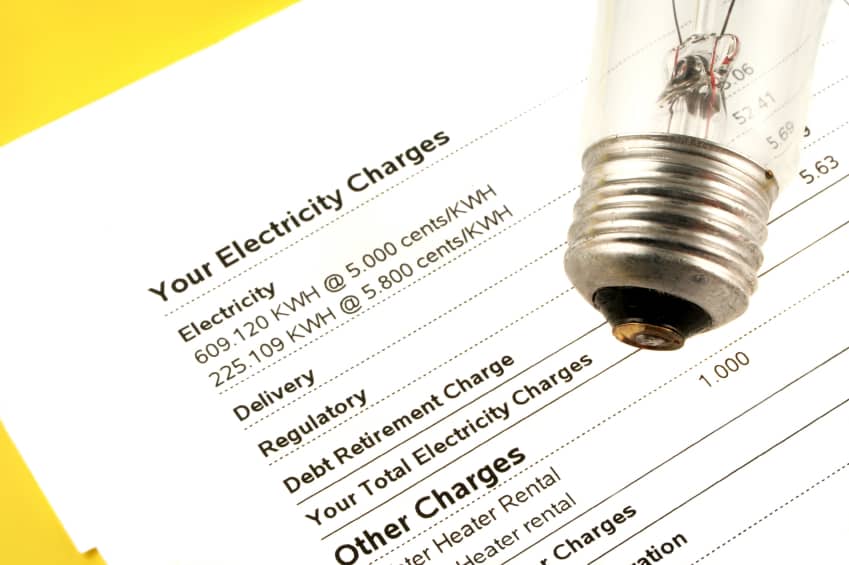Families are increasingly looking for ways to reduce their energy costs as a means to help the environment and lower expenses. No family would purchase a television, refrigerator, and/or other household appliance without first shopping for a combination of best price and best product.
In Pennsylvania, all consumers have the ability to shop for their electric supplier but not everyone does. Electric costs vary by use. On average, a typical user will spend approximately $1,000 per year on their electric bill. It is possible to save as much as 6% or $60.00 a year by carefully shopping for an alternative supplier.
Pennsylvania Utility Commission (PUC)
Your selection of a supplier need not be limited to price alone, as you have the option to choose from a number of companies offering a combination of price savings and the use of green energy for the environmentally conscious among us. If you don’t choose an energy supplier, you will default to the energy supplier in your geographic area. In the metropolitan Philadelphia area, that supplier is PECO Energy. In Pennsylvania, energy is regulated by the PUC (The Pennsylvania Utility Commission). The PUC publishes a price to compare (PTC) on its website.

As previously stated, all Pennsylvania residents have the right to choose their own electric energy supplier. The rates charged vary by supplier and city. The PUC website allows you to insert your zip code and obtain a list of suppliers and their competitive prices in your area. The list also includes a breakdown of which companies provide green options.
Generation, Transmission, and Distribution Charges
When you choose a company, you are essentially choosing the company that generates your electricity. Your bill is made up of generation charges, transmission charges, distribution charges, customer charges, and transition charges. Of these charges, generation charges make up the majority of the average electric bill. This is the charge being billed by the suppliers you choose and the commodity you are shopping for. Energy consumption is based on a usage called Kilowatt-hour or kWh. Think of kWh as simply a unit of measure of the cost of energy. The price to compare is quoted as cost (in cents) per kWh.
There are basically three charges to your bill.
- Distribution Charges – Charge for use of local wires, transformers, substations, and other equipment used to deliver electricity to households over high voltage transmission lines
- Transmission Charges – Charge for moving high voltage electricity from the generation plant to the distribution line of an electric distribution company.
- Generation Charge – Charge for the production of electricity.
In addition to these charges, your utility company also bills for the following charges which are unrelated to the delivery of energy:
- State Taxes – Charge or tax by the State of Pennsylvania
- Customer Charges – A monthly charge to cover cost of billing, meter reading and maintenance.
The price to compare (PTC) is the price per kilowatt hour (kWh) your electric distribution company charges. The prices listed on the PUC site allow you to compare the generation portion of your bill based on the same (apples to apples) criteria. The prices listed do not adjust for whether they are fixed or variable. The PUC site includes the gross sales tax, but if you call companies asking for their price to compare make sure to inquire as to whether or not the quoted price includes the gross sales tax.

A fixed-price contract will remain the same for a set period of time. This provides the customer a certainty as to the cost of their energy consumption over the set time period. Variable prices contract may change at any time according to the contract terms of the supplier. If market rates increase, the consumer pays more, and if market rates decrease the consumer pays less under a variable contract.
In most cases, when you choose a supplier you should receive a single monthly bill from the electric utility. Some suppliers might bill separately from the utility company and therefore you would receive two bills. Check with the supplier you are considering before making a final decision if this is important to you.
Be Careful With Contracts
The consumer needs to be careful as to what occurs when their contract expires. Does it remain a fixed contract? Does the term change? Does it become a variable contract? A number of suppliers offer an introductory rate whose price to compare (PTC) is generally lower than the price at the beginning of the next term. If you choose one of these suppliers, find out what the rate will be at the expiration of the term.
In all cases prior to a contract expiring, the consumer will receive two contract renewal notices from the current supplier. The first notice should arrive 52 to 90 days prior to the expiration of the current contract. The notice should provide information on new prices, changes if any to the terms of the renewal contract, an explanation of consumer options and when those options need to be exercised, and the supplier’s price to compare (PTC). Prior to choosing a supplier find out if there is a cost for early termination.
More information regarding the selection of suppliers can be found on the PUC’s website. (Search for suppliers.) It is strongly suggested that you review the Questions to ask Suppliers on their website and make use of their listing of energy suppliers which contains a very thorough listing of the supplier’s price to compare and terms of offering by zip code.





